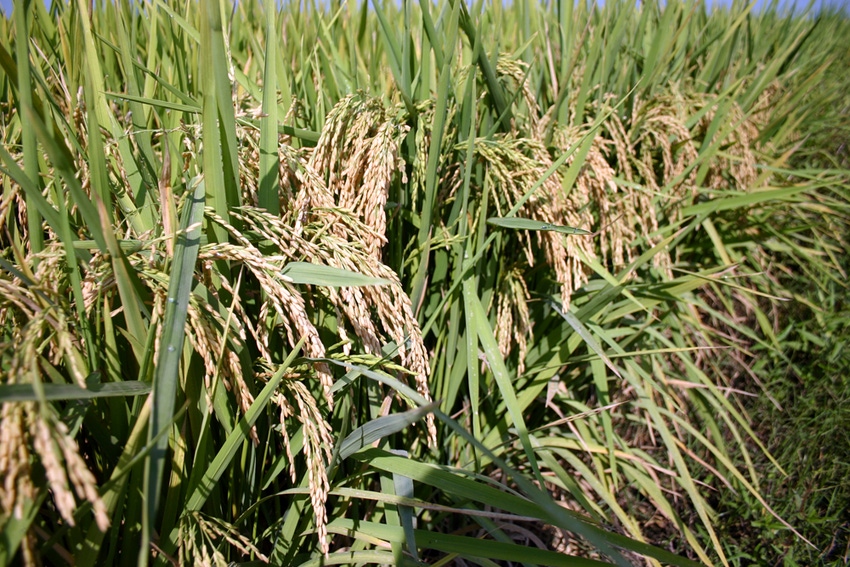
Prospects are good that this year’s record global rice crop could be followed by another one in 2011.The record crop in 2009-10 was due to expanded plantings and record average yield. Expectations for an even larger 2011-12 crop is based on yield gains alone.Larger crops for 2010-11 have been estimated for Argentina, Australia, Bangladesh, Brazil, China, India, Indonesia, the Philippines, Sub-Saharan Africa, United States and Uruguay.

A big global rice crop in 2010 might very well be followed by another in 2011, assuming normal weather patterns, says Nathan Childs, senior rice market analyst, USDA’s Economic Research Service. Childs spoke at the USA Rice Outlook Conference in Biloxi, Miss.
Since the world produced a record rice crop in 2009-10, this would mean two record global rice crops in a row. The record 2009-10 crop, which was 2.5 percent larger than the previous one, was due to expanded plantings and record average yield. Expectations for an even larger 2011-12 crop is based on yield gains alone, according to Childs.
Larger crops for 2010-11 have been estimated for Argentina, Australia, Bangladesh, Brazil, China, India, Indonesia, the Philippines, Sub-Saharan Africa, United States and Uruguay, while smaller crops are expected in North and South Korea, Pakistan, Colombia and Egypt.
As a result of big crops, global rice supplies are up 3 percent from last year and are the highest on record, noted Childs. This marks the sixth consecutive year of increasing global supplies for rice. Global ending stocks are projected to decline by less than 1 percent from last year, with most of the decline attributed to India and the Philippines. The stocks-to-use ratio is “comfortable” at slightly over 20 percent.
“Stocks were huge at the turn of the century, and prices were at the lowest levels since the early 1970s,” Childs said. “We got stocks lower than what the market was comfortable with in 2004-05, and they’ve built back up since.”
Childs projects a small increase in world trade in 2011, after three straight years of little growth. Smaller imports are expected in Indonesia, Southeast Asia and the Philippines, while Sub-Saharan Africa is expected to import a record amount of rice. The Philippines remain the largest importer of rice in the world, followed by Nigeria, Iran, Saudi Arabia, EU-27, Iraq and Malaysia.
On the export side, Australia is in the market for the first time in a few years, and is expected to ship about 300,000-plus tons of rice. South America, Thailand and China are also expected to export more rice. Thailand is the biggest exporter of rice, at 10.5 million tons expected for 2011, while China has become a mid-level exporter of rice.
Pakistan’s exports have been trending upward, and will continue to do so, although exports did decline in 2010-11 because of reduced supplies due to flooding.
The U.S./Thailand price difference is widening, Childs says, “which is making the United States less competitive. Earlier in the year, we saw the United States prices almost even with Thailand. Now, they’ve returned to the traditional $50 difference.”
Over the next few months, large harvests will begin in Thailand and Vietnam, the world’s two largest exporters.
For 2011-12, Childs expects stable global rice area and a small increase in yield. “We see slightly larger global production and record total use that will be entirely driven by population growth, not per capita consumption. We see lower trading prices and global trade increasing at about 2.5 percent per year over the next 10 years. We project a larger world carryout, with stocks-to-use about the same.”
About the Author(s)
You May Also Like





